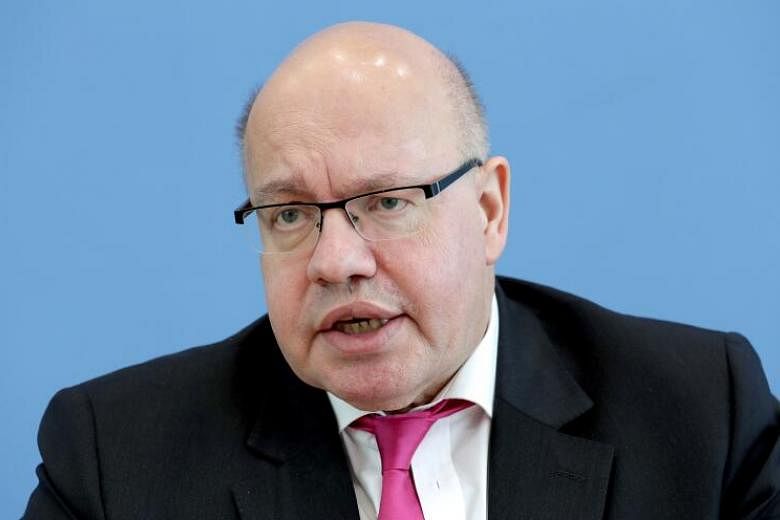BERLIN (BLOOMBERG) - Germany signed off on taking on billions in new debt as part of an unprecedented package totalling more than €750 billion (S$1.18 trillion) to cushion the fallout from the coronavirus pandemic.
Under a supplementary budget, the government will borrow 156 billion euros to fund additional social spending and direct company aid.
Germany has also agreed to set up a €600 billion rescue fund to provide virus-hit companies with loans and guarantees as well as buy stakes in stricken businesses. The fund consists of €400 billion in guarantees, €100 billion to bail out companies and €100 billion for state-backed loans.
The government did the right thing to "deploy the bazooka", Economy Minister Peter Altmaier said at a press conference in Berlin, warning off investors from taking advantage of the crisis to snap up German companies on the cheap.
"To everyone in hedge funds or elsewhere who is already looking forward to buying one or the other cheaply, make no mistake about it: We are determined to assist our companies in this situation," he said.
As the devastating implications of the disease become clear, Chancellor Angela Merkel's ruling coalition is abandoning a longstanding commitment to balanced budgets and using emergency powers to suspend rules restricting borrowing that are enshrined in the constitution.
The economy could shrink by about 5 per cent this year, according to Finance Minister Olaf Scholz, who held aloft a large stack of legislation to illustrate the government's efforts to limit the damage.
Dr Merkel's Cabinet signed off on the spending plan in an emergency meeting on Monday (March 23). The German leader was forced to chair the gathering via video conference after quarantining herself at home on Sunday following earlier contact with a doctor who later tested positive, taking her out of the public eye just as she asserts herself into the crisis.
Mr Scholz said she was in good health and going out about her duties at home like many other people in Germany.
In addition to the €156 billion for the supplementary budget, the rescue fund could issue up to €200 billion in additional debt if needed. The ultimate size of the rescue fund's borrowings depends on how many companies ask for government help, according to Deputy Finance Minister Joerg Kukies.
The supplementary budget equals about 4.5 per cent of gross domestic product and will be presented to the Lower House of Parliament on Wednesday (March 25). It could move on to Germany's Upper House on Friday.
A government initiative to lend firms about €500 billion via state-owned development bank KfW kicked off on Monday as aid programmes start getting rolled out.
"It's all about helping businesses quickly and unbureaucratically," Mr Altmaier said. "A large part of that is providing liquidity."











